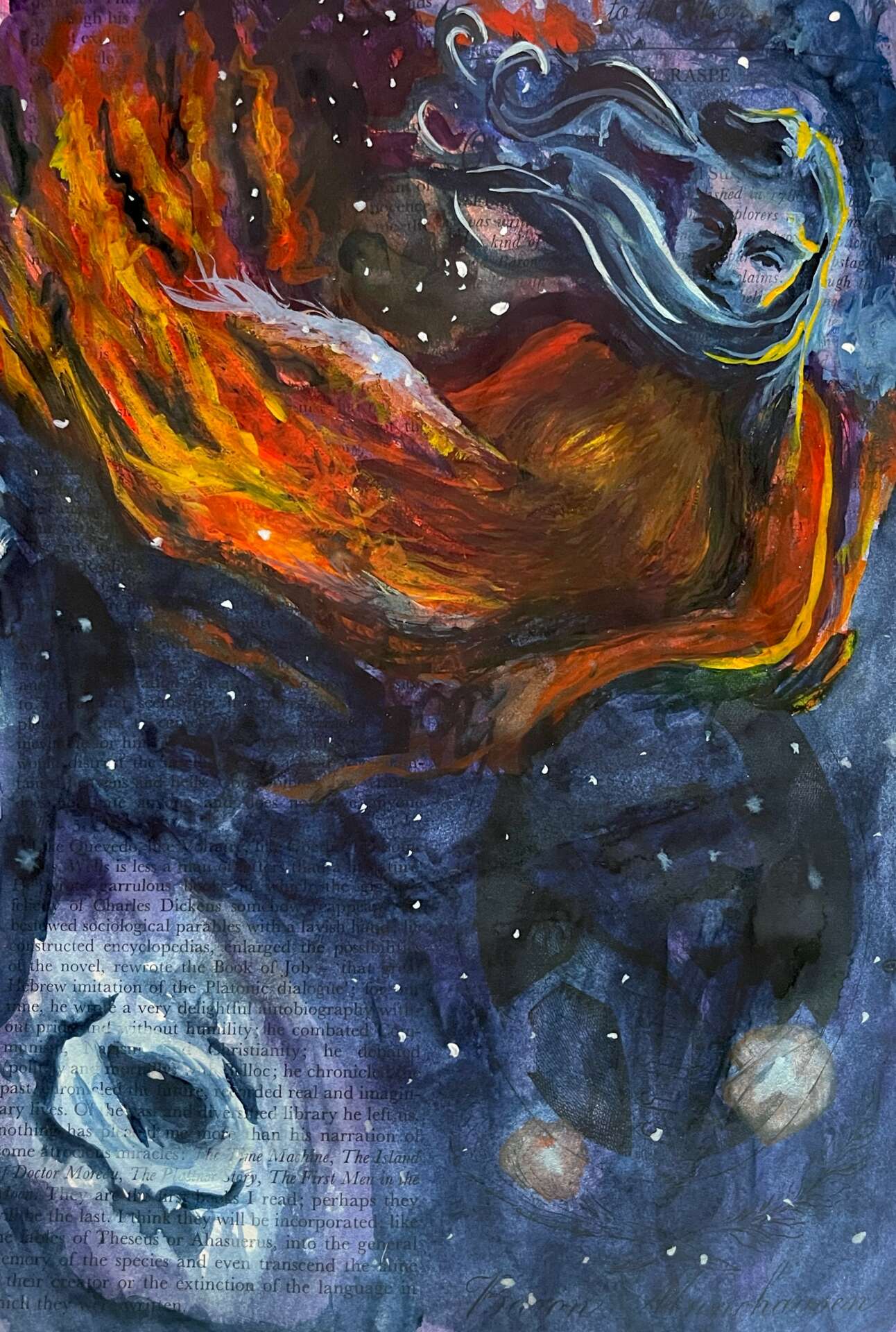We recently connected with Elizabeth Brooks and have shared our conversation below.
Hi Elizabeth, thanks for joining us today. Learning the craft is often a unique journey from every creative – we’d love to hear about your journey and if knowing what you know now, you would have done anything differently to speed up the learning process.
The skills I have developed as a visual artist were through “self-taught” means. This meant years of practice and trial and error. At first I tried oil painting blindly. There is a bit of science to it and if you don’t know what you’re doing, it can lead to a lot of waste and a very bad final product. Eventually, I looked up tutorials and techniques online and this greatly sped up my learning process. Having access to expert knowledge with a touch of a button truly is a marvel for our generation. I eventually was able to harness a basic understanding of the benefits of layering oil paint and the effects of adding differing amounts of paint thinner vs. linseed oil.
I have often questioned whether pursuing an art degree would have helped me develop my artistic skills sooner but then I remember having the innate desire to pursue oil painting is ultimately the indicator for my success. I would also like to add that I don’t think artistic skill development should ever be considered “done.” I learn something new every day in painting and I hope that I will continually do that. I think the day that I stop learning is the day that my creativity falters.
One of the biggest personal obstacles I have faced with being an artist is never having the chance to pursue my art exclusively. I have worked as a high school history teacher for the past 10 years and I use my free time to paint. There have been many times where I had to stop in the middle of a creative flow because I needed to prepare for my other job. I have also had to turn down opportunities in other cities that interfered with my teaching job.
On the flip side though, I do think being a teacher has helped me learn to manage my time better when I am working on my art. It has also given me this deep desire to put my heart and soul into my art. Art has become my form of therapy for handling the stresses of teaching. I think that’s a really important life lesson–that you really can be unstoppable if you have a deep passion for a craft. By this I mean, nothing can stand in your way. It is almost as if the obstacles you face (artist block, time limitations, rejection, day job, etc.) only make you want to be even more successful so you can prove to yourself and others that your work is worth it.



Awesome – so before we get into the rest of our questions, can you briefly introduce yourself to our readers.
I have been a practicing artist for 10 years and live on the Gulf Coast of Alabama. My work centers around the power and beauty of nature, on earth and beyond, and the human place within that. I primarily work with oil paint and create a number of figurative and landscape works with ethical and societal messages. I hope that my art will channel unity in a world that increasingly feels more divided. While I have always hoped to become the best artist I can be, I also want to foster an art community for emerging artists in my local area through pop-up themed art shows. So far, I have hosted two such shows and plan to host more in 2023. Through these themed shows, we have been able to help new artists find footing in the art community and gain the interest of locals.
Is there something you think non-creatives will struggle to understand about your journey as a creative? Maybe you can provide some insight – you never know who might benefit from the enlightenment.
I think non-creatives might ask “why?” Pursuing art can be a very lonely journey and it isn’t always profitable. Non-creatives tend to focus on that. I would invite non-creatives to consider what they want to leave behind when they die. For me, that hits the core of why I create. I think artistic skill is one of the highest human achievements.




How can we best help foster a strong, supportive environment for artists and creatives?
In our technology-driven world today, society can easily support artists simply by sharing their favorite artists’ work on social media. It’s free to do that and sometimes those shares can lead to sales or opportunities. You really never know.
Further, I believe society can best support artists and creatives by investing in real art. I understand that purchasing an original work of art is expensive. However, prints (purchased from the artist) are almost always an option. I would love to see the day when society stops purchasing anonymous printed “quick art” at home decor stores. These purchases rarely benefit the artists and instead make huge corporations even richer. They also further the throwaway mentality and contribute to waste. The next time you are in one of these home decor stores, I invite you to see how many of the framed and canvas art actually have signatures by real artists.
Contact Info:
- Website: artofebrooks.com
- Instagram: @ebofficialart
- Facebook: https://www.facebook.com/ebofficialart/


